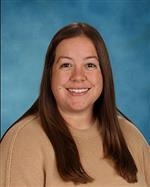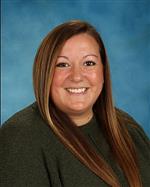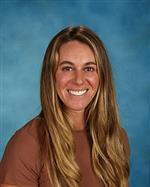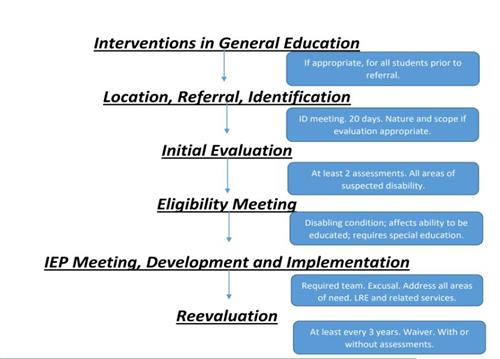- Aaron Decker School
- Special Education
Welcome to Special Services!
-
The Child Study Team (CST) is a group of professionals employed and contracted by the Butler Board of Education who provide consultative, evaluative, and prescriptive services to teachers and parents in regard to students who are experiencing school related difficulties.
Who are the members of the Child Study Team?
The members of the Child Study Team, as determined by the New Jersey Department of Education, are a school psychologist, a learning disabilities teacher-consultant, a school social worker and a speech language specialist, as appropriate. .
What are the responsibilities of the school psychologist?
The school psychologist has expertise in determining a child’s level of cognitive and conceptual development. In addition the psychologist is concerned with the emotional status of the student, and how both internal and external factors may affect behavior and performance in school. The school psychologist works with both general education and special education teachers to maximize a student’s potential.
What are the responsibilities of the learning disabilities teacher-consultant?
The learning consultant (LDT-C) is trained to determine the learning styles of students, to determine specific achievement levels in a variety of content areas, and to recommend specific teaching methods and strategies that may benefit a student. This professional is generally called upon to model specific strategies and methods that may benefit students.
What are the responsibilities of the school social worker?
The expertise of the social worker lies in assessing the student relative to the family, the school, and the community. This professional generally gathers information concerning the student’s health, family, and school history as it pertains to the student’s current school functioning. The social worker is also the professional responsible for coordinating community resources on behalf of students and their families.
Our Child Study Team
-
Lauren McMahon-Macchiarelli

Physical Therapist
Aaron Decker School
Phone: 973-492-2073 x7343
Email: lmcmahonmacchiarelli@butlerboe.org -
Kathleen Marano-Frezza

Board Certified Behavior Analyst
Aaron Decker School
Phone: 973-492-2073 x7348
Email: kmarano@butlerboe.org -
Toni-Anne Jack

Occupational Therapist
Aaron Decker School
Phone: 973-492-2023 x7338
Email: tjack@butlerboe.org -
Jeni Kertesz
LDT-C
Aaron Decker School
Phone: 973-492-2073 x7306
Email: jkertesz@butlerboe.org -
Kaitlin Snyder

Speech & Language Therapist
Aaron Decker School
Phone: 973-492-2023 x7357
Email: ksnyder@butlerboe.org -
Lindsay Masessa

LDT-C
Richard Butler School
Phone: 973-492-2079
Email: lmasessa@butlerboe.org -
Patrick Keane
School Psychologist
Butler High School
973-492-2000 x7115
Email: pkeane@butlerboe.org
Referral Process for CST Evaluation
-
Referral Process

-
Making a Referral
What is a referral?
A referral is a written request for an evaluation that is given to the school district when a child is suspected of having a disability and might need special education services. In most instances, the student suspected of having a disability should first be referred to the Intervention and Referral Services Team.
How is a student referred for a Child Study Team Evaluation?
Students between the ages of 3 and 21 suspected of having an educational disability may be referred to the Child Study Team for an evaluation. If you believe that your child may have a disability, you may refer your child for an evaluation by submitting a written request to the school district. The district will only accept and process signed hard copies of referrals.
Who can make a referral?
- School staff and/or the building administrator(s) can refer a student to the Child Study Team through their school based Response to Intervention teams. The RTI teams are building-based, interdisciplinary teams that meet regularly to develop intervention plans for students experiencing significant academic and/or social/emotional difficulties in the classroom. Once the RTI teams have exhausted its resources and determines that additional information may be necessary, or feels that the student may be educationally disabled, the RTI team forwards a Child Study Team referral to the Director of Student Services. The Director of Student Services forwards the request to the school’s Child Study Team who schedules an Initial Planning Meeting with the parent(s), Child Study Team and the student’s teacher(s) to discuss the student’s academic and/or social/emotional difficulties and a possible evaluation for Special Education and Related Services.
- PARENT(S): Parent(s) may initiate a Child Study Team referral for their child who may be experiencing significant academic and/or social/emotional difficulties in the classroom by contacting the building principal and forwarding the request in writing.
- ADMINISTRATORS or OUTSIDE AGENCIES: If a student is experiencing significant academic and/or social/emotional difficulties in the classroom and the intervention plan has been unsuccessful in mitigating these difficulties the Principal, other building administrators or an individual from a state agency may refer a student to the Child Study Team.
- School staff and/or the building administrator(s) can refer a student to the Child Study Team through their school based Response to Intervention teams. The RTI teams are building-based, interdisciplinary teams that meet regularly to develop intervention plans for students experiencing significant academic and/or social/emotional difficulties in the classroom. Once the RTI teams have exhausted its resources and determines that additional information may be necessary, or feels that the student may be educationally disabled, the RTI team forwards a Child Study Team referral to the Director of Student Services. The Director of Student Services forwards the request to the school’s Child Study Team who schedules an Initial Planning Meeting with the parent(s), Child Study Team and the student’s teacher(s) to discuss the student’s academic and/or social/emotional difficulties and a possible evaluation for Special Education and Related Services.
-
Initial Evaluation
What is the procedure after the referral is made? (Shown in the Chart Above)
Once the referral has been made the Case Manager has twenty (20) calendar days (excluding school holidays) to schedule an Identification Meeting. The necessary personnel expected to attend this meeting would be a social worker, psychologist, learning disabilities teacher-consultant, classroom teacher, speech & language specialist (if the suspected disability included that area or the child was age 3-5) and certainly the parent.
Are students automatically assessed if the request is made?
No. Once a request for a Child Study Team evaluation is made an Initial Planning/Identification Meeting must be scheduled. At that meeting it is determined if a Child Study Team Evaluation is warranted and if so an Evaluation Plan is developed.
If the team determines an evaluation is not warranted, they may refer to the school’s I&RS committee, requesting that the I&RS committee amend the current Action Plan and/or refer the child to the 504 committee.
What is an evaluation?
An evaluation is the process used to determine whether your child has a disability. This process includes a review of any relevant data, and the individual administration of any tests, assessments and observations of your child. For an initial evaluation, at least two child study team members and other specialists, as required or as determined necessary, must participate. A minimum of two assessments of your child are needed to determine eligibility for special education and related services. Each assessment must be conducted by a person who has appropriate training, or who is qualified to conduct the assessment through his or her professional license or certification.
When is an evaluation warranted?
An evaluation is needed when the parent(s), the members of the child study team and your child’s teacher meet and decide that your child may have a disability.
What is the procedure if the student is going to be assessed?
Once it is determined that assessments are necessary an initial evaluation plan is developed and the parent/guardian gives written permission. The district then has ninety (90) days to complete the necessary evaluations. Within the ninety (90) days an Eligibility Conference is scheduled where the evaluations are interpreted and it is determined if the student is eligible for special education and/or related services.
If a student is eligible, does that mean he or she will be in a special education class?
Absolutely not. Before a student receives services an Individual Education Program must be developed and agreed to. In Butler the goal is to have the majority of students who are eligible for special education services to receive the majority of their services within a general education environment and/or classroom.
-
Eligibility Meeting
How is eligibility determined?
When the evaluation is completed, eligibility is determined collaboratively at a meeting according to N.J.A.C. 6A:14-2.3(k).
To be eligible for special education and related services:
A student must have a disability according to one of the eligibility categories according to6A:14-3.5(c); The disability must adversely affect the student’s educational performances; and
The student must be in need of Special Education and Related Services.
The school district must provide a copy of the evaluation report(s) and documentation to be used to make a determination of eligibility to the parent (or adult student, when applicable) not less than 10 days prior to the meeting.
-
IEP Meeting
What is an Individualized Education Program?
After your child is determined to be eligible for special education and related services, a meeting will be held to develop your child’s IEP. The IEP is a written plan that describes in detail your child’s special education program. The IEP should describe how your child currently performs and your child’s specific instructional needs. The IEP must include detailed and measurable annual goals and short-term objectives or benchmarks.
Who must attend the IEP Meeting
Except when a member of the IEP team has been excused from attending the meeting with parental consent in accordance with NJAC 6A:14 the following persons must attend IEP meetings:
Student, if appropriate;
- Parent;
- Not less than one general education teacher (to the extent appropriate), if the student is or will be participating in regular education;
- Not less than one special education teacher (or special education provider where appropriate);
- At least one child study team member;
- Case manager;
- School district representative;
- Others at the discretion of the parent or school district; and
- If transition will be discussed at the IEP , a representative of any other agency likely to provide or pay for services; and
You have the right to:
- Copies of your child’s IEP;
- Bring others with you to the meeting;
- Record IEP meetings if you inform the other persons orally or in writing, prior to the meeting stating that you intend to record the meeting;
- Record IEP meetings if you inform the case manager in writing prior to the meeting stating that you intend to record the meeting;
- Have the IEP implemented within 90 days of the school district’s receipt of your consent for the first evaluation;
- Have the IEP implemented as soon as possible following the IEP meeting;
- Have the IEP reviewed at least annually; and
- Have extended school year services considered by the IEP team.

